Sigma Xi Distinguished Lecturers, 2017–2018
Potential hosts should contact lecturers directly to book events. In making arrangements, hosts should be specific about dates, lecture topic, scope of the lecturer's visit and any special accommodations that may be called for.
Each lecturer has designated his or her topic(s) for three different types of audiences. Where more than one level is shown, the lecture can be adjusted to the needs of the audience:
- P (Public)
Aimed at presenting scientific issues of general concern to a public audience.
- G (General)
Intended for a normal Sigma Xi audience of both scientists and other scholars representing a broad range of disciplines.
- S (Specialized)
Aimed at scientists and students in fields that are closely related to that of the lecturer.
Paul T. Anastas
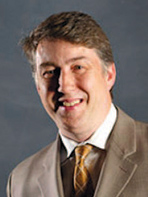 Teresa and H. John Heinz III Chair of Chemistry and the
Teresa and H. John Heinz III Chair of Chemistry and the
Environment School of Forestry and Environmental Studies, Yale University
Email
Phone: 203-432-6165
- Designing a Sustainable Tomorrow (G,P)
- Green Chemistry and Transformative Innovation (G,P)
- Earth Abundant Catalysts for Water Oxidation and Lignin
Degradation (S)
Paul T. Anastas is the Teresa and H. John Heinz III Professor in the Practice of Chemistry for the Environment. He has appointments in the School of Forestry and Environmental Studies, Department of Chemistry, and Department of Chemical Engineering. In addition, Prof. Anastas serves as the Director of the Center for Green Chemistry and Green Engineering at Yale. Anastas took public service leave from Yale to serve as the Assistant Administrator for the US Environmental Protection Agency and the Agency Science Advisor from 2009-2012. From 2004 -2006, Paul Anastas served as Director of the ACS Green Chemistry Institute in Washington, D.C. He was previously the Assistant Director for the Environment in the White House Office of Science and Technology Policy where he worked from 1999-2004. Trained as a synthetic organic chemist, Dr. Anastas received his Ph.D. from Brandeis University and worked as an industrial consultant. He is credited with establishing the field of green chemistry during his time working for the U.S. Environmental Protection Agency as the Chief of the Industrial Chemistry Branch and as the Director of the U.S. Green Chemistry Program. Dr. Anastas has published widely on topics of science through sustainability including eleven books, such as Benign by Design, Designing Safer Polymers, Green Engineering, and his seminal work with co-author John Warner, Green Chemistry: Theory and Practice.
 Richard Canary
Richard Canary
Professor of Mathematics, University of Michigan
Email
Phone: 734-763-5861
Web
- Non-Euclidean Sports and the Geometry of Surfaces (P,G)
- Hyberbolic Sports and the Geometrization of Three-Dimensional
Spaces (S)
- The Inhibition of Free Radical Induced DNA Damage by Both Single- and
Multiwall Carbon Nanotubes (G,S)
Dick Canary received his B.A. from the New College of the University of South Florida in 1985, his M.Sc. from the University of Warwick in 1985 and his Ph.D. from Princeton University in 1989. After two years as a Gabor Szego Assistant Professor at Stanford University, he joined the Department of Mathematics at the University of Michigan in 1991. He studies the topology and geometry of surfaces and three-dimensional manifolds. (A three-dimensional manifold is an object which looks locally like three-dimensional Euclidean space, for example the universe we live in.)
Recently he has also worked in higher Teichmuller theory and served on the organizing committee of a research semester on that topic held at the Mathematical Sciences Research Institute in Berkeley in Spring 2015. Pedagogically, he has a keen interest in inquiry-based teaching methods and developed an inquiry-based class in Topology at the University of Michigan. Personally, he enjoys travel, poker, golf and spending time with his family.
Andrew Cleland
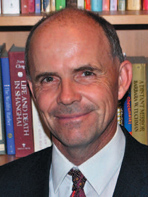 John A. MacLean Sr. Professor for Molecular Engineering Innovation and Enterprise, University of Chicago
John A. MacLean Sr. Professor for Molecular Engineering Innovation and Enterprise, University of Chicago
Email
Phone: 773-834-9182
Web
- Mechanical Systems in the Quantum Regime (G)
- Building a Quantum Computer (G)
- Transitioning Scientific Research to a Startup Company (P)
Andrew Cleland is an expert on experimental quantum systems. His focus is on the application of superconducting circuits to quantum computation and quantum measurement; the development of nanoscale devices integrating electronic, mechanical and optical fields, with a goal for operation at the quantum limit; and the development of microfluidic technology for practical applications, with a focus on high-throughput nanoparticle analysis. Among his notable accomplishments are: Putting a mechanical system in its quantum ground state, and then performing quantum control experiments that created a single quantum excitation as well as an entangled state; placing and then measuring an electromagnetic resonator in a and controlled quantum state, including the digital synthesis of complex photon superpositions; building a nanomechanical electrometer; and the experimental implementation of surface codes, which may form the basis for a fault-tolerant quantum computers. He also is a founder of Spectradyne LLC, a startup company pioneering the microfluidic-based detection and measurement of nanoparticles in fluid. Prof. Cleland completed his undergraduate and graduate studies in Physics at the University of California at Berkeley, pursued postdoctoral studies at the Centre D'Etudes of Saclay France as well as at the California Institute of Technology, then joined the faculty at the University of California at Santa Barbara. He is now the John A MacLean Professor at the University of Chicago, the Director of the Pritzker Nanofabrication Facility, and Staff Scientist at Argonne National Laboratory.
Lisa D. Cook
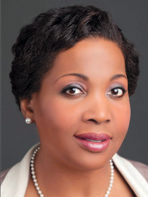 Associate Professor, Department of Economics, Michigan State University
Associate Professor, Department of Economics, Michigan State University
Email
Phone: 517-432-7106
Web
- The Idea Gap in Pink and Black: Explaining Differences in Patenting Outcomes (G,S)
- Where Did All the African American Inventors Go? (P,G)
- Violence and Economic Growth: Evidence from African American Patents, 1870–1940 (P,G,S)
Lisa D. Cook is an Associate Professor of Economics and International Relations at Michigan State University. She was the first Marshall Scholar from Spelman College and received a second B.A. in Philosophy, Politics, and Economics from Oxford University. She earned a Ph.D. in economics from the University of California, Berkeley with fields in macroeconomics and international economics. Prior to this appointment, she was on the faculty of Harvard University’s Kennedy School of Government and was a National Fellow at Stanford University. Dr. Cook is the author of a number of published articles, book chapters, and working papers. Among her current research interests are economic growth and development, innovation, financial institutions and markets, and economic history. Her research has been funded by the National Science Foundation, the National Bureau for Economic Research, the Smithsonian Institution, and the Economic History Association, among others. She is currently Co-Director of the American Economic Association Summer Program and was President of the National Economic Association from 2015 to 2016. During the 2011-2012 academic year, she was on leave at the President’s Council of Economic Advisers and has had visiting appointments at the National Bureau of Economic Research, the University of Michigan, and the Federal Reserve Banks of New York and Chicago. She serves on the Advisory Board of the Lemelson Center for the Study of Invention and Innovation of the Smithsonian Institution, and is a member of the Council on Foreign Relations. She is a guest columnist for the Detroit Free Press and a regular contributor on MSNBC. She speaks English, French, Russian, Spanish, and Wolof.
Susan N. Coppersmith
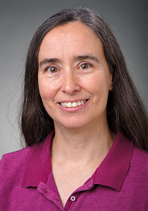 Robert E. Fassnacht and Vilas Professor of Physics, University of Wisconsin-Madison
Robert E. Fassnacht and Vilas Professor of Physics, University of Wisconsin-Madison
Email
Phone: 608-262-8358
Web
- From bits to qubits: a quantum leap for computers (P, G)
- Building a quantum computer using silicon quantum dots (S)
Susan Coppersmith is a theoretical condensed matter physicist who has worked on a broad range of problems in the area of complex systems, and has made substantial contributions to the understanding of subjects including glasses, granular materials, the nonlinear dynamics of magnetic flux lattices in type-II superconductors, and quantum computing. Dr. Coppersmith’s contributions have been recognized by her election as a fellow of the American Physical Society, the American Association for the Advancement of Science, and the American Academy of Arts and Sciences. She has also been elected to be a member of the National Academy of Sciences.
James T. Costa
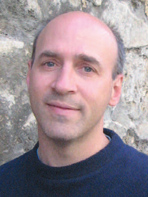 Executive Director, Highlands Biological Station, and Professor of Biology,
Executive Director, Highlands Biological Station, and Professor of Biology,
Western Carolina University
Email
Phone:828-826-2602
Web
- Origin of the Origin: A Primer to Charles Darwin’s ‘One Long Argument’ (P, G)
- Indefatigable Naturalists: Wallace and Darwin On the Evolutionary Trail (P, G)
- The Consilient Mr. Wallace: Evolutionary Insights from Alfred Russel Wallace's 'Species Notebook' of 1855-1859 (G, S)
- Beyond Selfish Herds: A Caterpillar’s-Eye-View of Social Evolution (G, S)
- Social Evolution in Arthropods: Lessons from the Other Insect Societies (P, G, S)
James T. (Jim) Costa has served as Executive Director of the Highlands Biological Station in the Blue Ridge Mountains since 2005, prior to which he was full time faculty in the Biology Department at Western Carolina University beginning in 1996. Jim earned his BS in biology at SUNY Cortland, and completed his graduate work in entomology and population genetics at the University of Georgia. He is a long-time Research Associate of Harvard's Museum of Comparative Zoology, where he was a Postdoctoral Fellow, has held the H. F. Robinson Chair in Biology at Western Carolina University, and has been awarded Fellowships at the Radcliffe Institute for Advanced Study (Harvard) and the Wissenschaftskolleg zu Berlin (Germany) among other awards. His research interests include social evolution and the history of evolutionary thinking. As an entomologist, evolutionary biologist, and historian of science, Jim has authored dozens of research papers and five books. The Other Insect Societies (HUP, 2006) is Jim's homage to the lesser-known weird and wonderful forms of social life found among insects and their ilk. His work in the history of evolutionary biology includes The Annotated Origin (HUP, 2009) and two books on the naturalist Alfred Russel Wallace, the renowned tropical explorer, founder of modern biogeography, and co-discoverer with Darwin of evolution by natural selection. On the Organic Law of Change (HUP, 2013) is an annotated transcription of Wallace's Species Notebook, documenting the naturalist's evolutionary speculations and explorations of the Indonesian archipelago in the 1850s. The companion volume Wallace, Darwin, and the Origin of Species (HUP, 2014) traces Wallace and Darwin's parallel quests to solve the mystery of species origins, and examines the complex relationship between these giants of evolutionary biology. Jim's forthcoming book Darwin's Backyard: How Small Experiments Led to a Big Theory is due to be published by W. W. Norton in 2017. Jim lectures widely in the US and Europe, for many years co-instructed Harvard’s Darwin summer program at the University of Oxford, and is a regular leader-lecturer with the Harvard Alumni Association / Harvard Museums of Science and Culture travel program.
Lee Dugatkin
Professor of Biology, University of Louisville
Email
Phone: 502-852-5943
Web
- How to Tame a Fox and Build a Dog: A Siberian Tale of Jump-Started Evolution (P,G)
- The Evolution of Goodness (P,G)
- Mr. Jefferson and the Giant Moose: When Natural History and History Collide (P,G,S)
- Genes, Culture and Behavior: Mate-choice Copying in Humans and Nonhumans (P,G,S)
- Altruism Writ Small: Why microbes protect one another from antibiotics (G,S)
Dr. Dugatkin is Professor of Biology at The University of Louisville. His main areas of research interest are: 1) the evolution of social behavior, and 2) the history of science. He has spoken at over eighty universities around the world, including Harvard University, Oxford University, The University of Copenhagen, Taiwan National University, and The London School of Economics. He has also presented his work in public venues such as The Smithsonian Institute, The American Museum of Natural History, and The Museum of Colonial Williamsburg. Dr. Dugatkin is the author of over 150 technical articles on behavioral evolution, and is a contributing author to Scientific American, and The New Scientist. He has published three books on the evolution of cooperation, and a number of popular books, including Mr. Jefferson and the Giant Moose. He is the author of two textbooks: Principles of Animal Behavior and Evolution (with Carl Bergstrom).
Lola Fatoyinbo
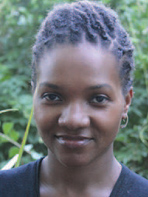
Earth Scientist, NASA Goddard Space Flight Center
Email
Phone: 202-746-1794
- Global Forests and Earth’s Climate: 4-Dimensional Data from New Satellite Constellations (G,S)
- Tree-hugging Meets Rocket Science: Space-age Estimation of Forest Carbon Stocks (G,P,S)
- Swamps, Sea level Rise, and Climate: Insights from High Resolution Remote Assessment of Coastal Carbon (G,S)
Lola Fatoyinbo received the Ph.D. degree in environmental sciences from the University of Virginia, Charlottesville, VA, USA, in 2008. From 2008 to 2009, she was a Postdoctoral Candidate in Radar Remote Sensing with the California Institute of Technology/NASA Jet Propulsion Laboratory. Since 2010, she is a Research Scientist with the Biospheric Sciences Laboratory, Goddard Space Flight Center, Greenbelt, MD, USA. Her research interests include applications of synthetic aperture radar polarimetry, interferometry, and fusion with optical data for ecosystem science applications. She is the Principal investigator of the EcoSAR P-band airborne system, Lead scientist for the NASA AfriSAR campaign and member of the Global Ecosystem Dynamics Investigation (GEDI) science team. In addition, she is the Principal or Co-Investigator of several NASA projects focusing on ecosystem structure and function. Dr. Fatoyinbo is the recipient of the 2011 Presidential Early Career Award for Scientists and Engineers.
Gregory S. Forbes (American Meteorological Society)
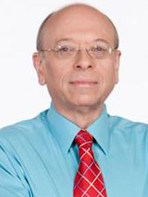 Severe Weather Expert, The Weather Channel
Severe Weather Expert, The Weather Channel
Email
Phone: 770-321-8629
- Severe Thunderstorms and Tornadoes-Understanding Them and Staying Safe (P, G, S)
- Looking back at 40+ years of Severe Storms and Toward the Future (P, G, S)
Gregory S. Forbes has been a Severe Weather Expert on The Weather Channel since 1999, based in Atlanta GA. Dr. Forbes deals with dangerous thunderstorm weather hazards such as tornadoes, damaging winds, hail, floods, and lightning. He received his B.S. in meteorology at Penn State University. He received his M.S. and PhD degrees at the University of Chicago, where he studied tornadoes and severe thunderstorms under Prof. T. Theodore Fujita-- world-famous for his invention of the F-scale used to rate tornadoes and for his discovery of narrow, intense thunderstorm downdrafts called microbursts. Dr. Forbes joined the faculty in the Department of Meteorology at Penn State University in 1978, where as Assistant and then Associate Professor he taught courses in weather analysis and forecasting, natural disasters, and other topics. He is a Fellow of the American Meteorological Society and is a past member of the Board on Atmospheric Sciences and Climate of the National Research Council.
Edward J. Hackett
Professor, Arizona State University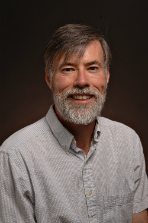
Email
Phone: 480-965-6561
- From Salomon's House to Synthesis Centers (G, S)
- The Cultural Contradictions of Science: Jeopardy and Opportunity (P, G, S)
- Making Science Useful, Making Useful Science (G, S)
- Peer Review and the Conduct of Science (G, S)
Edward J. Hackett is a professor in Arizona State University’s School of Human Evolution and Social Change, with appointments in the School of Sustainability, the School of Life Sciences, and the Consortium for Science Policy and Outcomes. He is former Director of the Division of Social and Economic Sciences at the National Science Foundation and has held faculty appointments at Rensselaer Polytechnic Institute and the Rockefeller University. He received his Ph.D. in sociology from Cornell University and BA from Colgate University. Hackett studies the social organization and dynamics of scientific research, asking how patterns of organization and interaction influence performance, and particularly how transdisciplinary collaborations achieve scientific synthesis. He has also written about research misconduct, the scientific career, science and law, university-industry research relations, and environmental justice. He is currently editor of Science, Technology & Human Values and recently co-edited The Handbook of Science and Technology Studies (MIT, 2007).
Sandra L. Hanson
Professor of Sociology, Catholic University 
Email
Phone: 703-532-0060
- Girls in Science: Why So Few? (P, G)
- Science for All? Diversity in Science in a Global Economy (P, G)
- Swimming Against the Tide: African American Girls and Science Education (S)
Sandra L. Hanson is Professor of Sociology at Catholic University. Her research focuses on gender, race/ethnicity and science. In Swimming Against the Tide: African American Girls in Science Education (2009), she examined the experiences of African American girls in the science education system. Sandra’s book Lost Talent: Women in the Sciences (1996) was a culmination of her research on the loss of talented young women in the science pipeline. Dr. Hanson received a Fulbright award for teaching and research on gender in Eastern Europe at the Jagiellonian University in Krakow Poland. Her second Fulbright award was for teaching and research on gender and science in an international context at the Global and European Studies Institute, Leipzig University. Sandra testified before the U.S. House of Representative’s Committee on Science and Technology (Subcommittee on Research and Science Education) hearing on “Encouraging the Participation of Female Students in STEM Fields.”
Nicholas Hud
Professor of Chemistry and Biochemistry,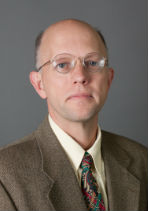
Georgia Institute of Technology
Email
Phone: 404-385-1162
Web
- The Scientific Quest for the Origin of Life (P, G)
- Experimental Investigations of the Origin and Early Evolution of Life (P, G, S)
- A Self-Assembly Approach to the Origin of RNA (G, S)
Nicholas Hud is Professor of Chemistry and Biochemistry at the Georgia Institute of Technology. He is also Director of the NSF-NASA Center for Chemical Evolution. Prof. Hud has studied the physical properties of DNA and RNA (the chemical sibling of DNA) for over twenty-five years. His research has produced fundamental insights regarding the packaging and functioning of DNA in living cells and viruses. Over the past decade, Prof. Hud’s research has become increasingly focused on questions related to the origin of life, and particularly the origin of RNA. Experiments carried out in his laboratory have provided several clues to how the first molecules of life could have spontaneously formed on Earth more than 3.5 billion years ago. Prof. Hud received his B.S. degree from Loyola Marymount University and his Ph.D. from the University of California, Davis. He conducted postdoctoral research at Lawrence Livermore National Laboratory and at UCLA.
Tomás Jiménez
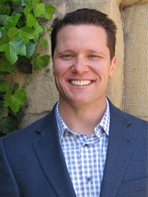 Associate Professor, Department of Sociology, Stanford University
Associate Professor, Department of Sociology, Stanford University
Email
Phone:650-721-5822
Web
- The Other Side of Assimilation: Immigration and the Changing American Experience (P,G,S)
- Immigration and the Making of Mexican America (P,G,S)
Tomás Jiménez is Associate Professor of Sociology and Comparative Studies in Race and Ethnicity. He is also Director of the undergraduate program in Comparative Studies in Race and Ethnicity and Director of graduate studies in sociology. His research and writing focus on immigration, assimilation, social mobility, and ethnic and racial identity. Prof. Jiménez's most recent book, The Other Side of Assimilation: Immigration and the Changing American Experience (forthcoming, University of California Press) examines how established individuals in the United States with no recent family history of immigration adjust to immigration driven change. His first book, Replenished Ethnicity: Mexican Americans, Immigration, and Identity (University of California Press, 2010) draws on interviews and participant observation to understand how uninterrupted Mexican immigration influences the ethnic identity of later-generation Mexican Americans. The book was awarded the American Sociological Association’s Sociology of Latinos/as Section Distinguished Book Award. Professor Jiménez has also published this research in the American Sociological Review, American Journal of Sociology, International Migration Review, Ethnic and Racial Studies, Social Science Quarterly, DuBois Review, and the Annual Review of Sociology.
Isaac Krauss

Associate Professor, Brandeis University
Email
Phone: 781-736-2574
Web
- Combining Organic Synthesis and Directed Evolution to Design Carbohydrate HIV Vaccines (S)
- Designing Carbohydrate HIV Vaccines Using Molecular Evolution (G)
- Seeking an HIV Vaccine: What do Sugars Have to Do with It? (P)
Isaac Krauss was born and raised in Fairbanks, Alaska, and did his undergraduate and Ph. D. training in chemical synthesis at Stanford and Columbia University. Subsequently, he moved to Memorial Sloan-Kettering Cancer Center for a postdoc, where he became interested in carbohydrate vaccines against HIV. In 2008, he joined the faculty of Brandeis University and initiated research programs in synthetic organic chemistry and the use of directed evolution as a tool to design improved carbohydrate vaccines. Krauss is the recipient of an NSF CAREER award and the Waltzer Teaching prize.
René López
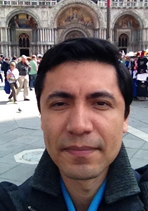 Associate Professor, Department of Physics and Astronomy & Department of Applied Physical Sciences, University of North Carolina at Chapel Hill
Associate Professor, Department of Physics and Astronomy & Department of Applied Physical Sciences, University of North Carolina at Chapel Hill
Email
Phone: (919) 962-7216
Web
René López obtained his bachelor's degree from the Monterrey Institute of Technology (Mexico), and his master's and doctoral degrees from Vanderbilt University (USA). He worked at the Oak Ridge National Laboratory and Vanderbilt University before joining the Faculty of the University of North Carolina at Chapel Hill (USA). He currently heads a group that does research in optical materials, particularly bio-inspired photonic structures for organic photovoltaics, dye sensitized solar cells, sensors and electro-chromic materials.
Patricia McAnany
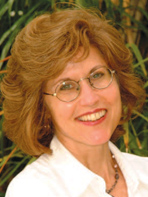 Kenan Eminent Professor of Anthropology, University of North Carolina at Chapel Hill
Kenan Eminent Professor of Anthropology, University of North Carolina at Chapel Hill
Email
Phone: 919-259-2702
Web
- Leaving Classic Maya Cities: Investigating the Fragility of Political Structures (P,G)
- Maya Cultural Heritage: How Archaeologists and Indigenous Communities Engage the Past (P,G)
- The Archaeology of Hybridity at Tahcabo, Yucatán, México (P,G)
Patricia A. McAnany is Kenan Eminent Professor of Anthropology at the University of North Carolina-Chapel Hill, external faculty at the Santa Fe Institute, and a senior fellow of the Pre-Columbian Program at Dumbarton Oaks in Washington, D.C. She has been the recipient of research awards from the National Science Foundation and the Archaeological Institute of America, and of fellowships from the Guggenheim Foundation, the National Endowment for the Humanities, the Radcliffe Center for Advanced Study at Harvard University, Dumbarton Oaks, and the Institute for the Arts & Humanities at UNC, Chapel Hill. A Maya archaeologist, she is principal co-investigator of Proyecto Arqueológico Colaborativo del Oriente de Yucatán, a community archaeology project focused on the Preclassic through Colonial community of Tahcabo, Yucatán. As Director of a UNC Program called InHerit: Indigenous Heritage Passed to Present (www.in-herit.org), she works with Indigenous communities throughout the Maya region to provide opportunities to dialogue about cultural heritage and to participate in heritage conservation. She is the author/co-editor of many journal articles and several books including Maya Cultural Heritage: How Archaeologists and Indigenous Communities Engage the Past (2016); Ancestral Maya Economies in Archaeological Perspective (2010); Questioning Collapse: Human Resilience, Ecological Vulnerability, and the Aftermath of Empire (2009) co-edited with Norman Yoffee; and Living with the Ancestors: Kinship and Kingship in Ancient Maya Society (2014, revised edition).
Peter R. MacLeish
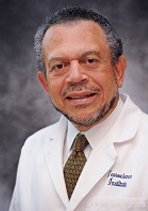 Chair and Professor, Department of Neurobiology, Director of the Neuroscience Institute, Morehouse School of Medicine
Chair and Professor, Department of Neurobiology, Director of the Neuroscience Institute, Morehouse School of Medicine
Email
Phone: 404-756-5786
Web
- The Study of Adult Neurons in vitro (G, S)
- Ion-Channel Compartments in Vertebrate Photoreceptors (S)
- Expanding the Capacity to Perform Cutting-Edge, Sustainable Biomedical Research in the U.S. (P)
Peter MacLeish received his bachelor’s degree in Electrical Engineering from the University of Western Ontario, Canada, and his Ph.D. and post-doctoral training from the Department of Neurobiology at Harvard Medical School. He was promoted to Assistant Professor in Neurobiology and moved to The Rockefeller University with Nobel Laureate, Torsten Wiesel, where he was subsequently promoted to Associate Professor. He was recruited to Cornell University Medical College as Professor of Physiology in Ophthalmology and founding director of research of the Margaret M. Dyson Vision Research Institute. He was recruited to Morehouse School of Medicine (MSM) to found the Neuroscience Institute. There, he continues his pioneering work on the electrophysiological properties of mature retinal cells. He currently serves on the Advisory Committee to the Director of NIH, on the Board of Scientific Counselors at NIMH, was a member of the NIH BRAIN Working Group and is a member of the National Academy of Medicine of the National Academies.
Beth A. Middleton
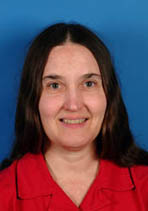 Research Ecologist, GS15. U.S. Geological Survey, Wetland and Aquatic Research Center
Research Ecologist, GS15. U.S. Geological Survey, Wetland and Aquatic Research Center
Email 1, Email 2
Phone: 337-266-8618 (office), 337-414-3535 (cell)
Web
Twitter
TEDxVermilionStreet Talk
- Wetlands and climate change: the reconnection of people and the land (P, G)
- The wind and the salt: reassembly of coastal vegetation following hurricanes (P, G, S)
- Restoration of wetlands after farming and flood pulsing (P, G, S)
- Wetland restoration and management in a future of changing climate (P, G, S)
Beth Middleton is a research ecologist with the Wetland and Aquatic Research Center, U.S. Geological Survey, Lafayette, Louisiana. Her research focuses on potential climate change impacts to wetlands using a macroecology approach to study ecosystem function across large geographical areas. Her work is of interest to scientists, managers, and the public in that it informs the way forward for climate change management. She maintains a long-term network to examine climate change effects on some of the most pristine cypress swamps in the southeastern United States. Her studies on the response of drought-stressed vegetation to hydrologic remediation is of critical importance to future natural resource conservation. Dr. Middleton’s talks focus on bringing an understanding of the effects of climate change on world wetlands to university and public audiences. She gives many invited lectures on her ecological research as well as Earth Day talks and a TEDx talk called “Conservation Oblivion.”
Bryant C. Nelson
 Staff Research Chemist, National Institute of Standards and Technology
Staff Research Chemist, National Institute of Standards and Technology
Email
Phone: 301-975-2517
Web
- Fundamental Interactions of Engineered Nanoparticles and Nanomaterials with DNA (P, G, S)
- Inhibition of DNA Repair Protein Activity by Gold [Au55] Nanoclusters (G, S)
- The Inhibition of Free Radical Induced DNA Damage by Both Single - and Multiwall Carbon Nanotubes (G, S)
Dr. Nelson is a staff research chemist and the Nanogenotoxicology project leader at the National Institute of Standards and Technology (NIST). He was educated at the University of Texas at Austin (B.Sc., Chemistry), the University of Massachusetts at Amherst (Ph.D., Analytical Chemistry) and completed his postdoctoral training as an NRC research fellow at NIST in Analytical Chemistry in 1997. At NIST, he has been responsible for the design, technical development and leadership of research projects related to understanding and characterizing the potential environmental health and human safety risks of engineered nanomaterials. His predominant research efforts are focused on investigating and characterizing the biochemical mechanisms involved in nanomaterial-induced genotoxicity (oxidative damage to nucleic acids) through in depth studies involving increasingly complex biological exposure models. His laboratory develops and utilizes a combination of low- (e.g., comet assay) and high-resolution (tandem mass spectrometry) bioanalytical platforms to understand the fundamental interactions of nanomaterials with DNA and to quantitatively characterize the repertoire of potential genotoxic responses. Dr. Nelson is heavily involved in the development and application of new, tandem mass spectrometry based methods (GC/MS/MS and LC/MS/MS) for identifying and quantifying the formation and accumulation of nanomaterial induced DNA modifications (base and nucleoside lesions) and his group is also involved in research to understand the effects of nanomaterials on the activity and expression of base excision and nucleotide excision DNA repair proteins in relation to the potential use of nanomaterials in anticancer therapeutics. Dr. Nelson actively advises/mentors undergraduate/graduate students and postdocs in bioanalytical chemistry, biochemistry, nanogenotoxicology and DNA damage and repair. He has authored or co-authored more than 50 refereed publications, given more than 50 oral presentations domestically and internationally and is currently an Associate Editor for the Journal of Environmental Quality. He is Past President of the NIST Chapter of Sigma Xi (2008 – 2009).
Karen Oates
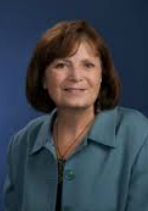 Professor of Biochemistry and the Dean of Arts & Sciences at Worcester Polytechnic Institute
Professor of Biochemistry and the Dean of Arts & Sciences at Worcester Polytechnic Institute
Email
Phone: 508-831-4678
- Bringing Civic Engagement into the Science Classroom (G, S)
- How People Learn And Creativity Of Science (P, G)
- Boosting Innovation: An Ecological Approach for Scientists & Engineers (G, S)
- The Obligation of Knowledge (P, G)
Dr. Karen Kashmanian Oates is a Professor of Biochemistry and the Dean of Arts & Sciences at Worcester Polytechnic Institute. Dr. Oates received her B.S. in Biology from Rochester Institute of Technology and her Ph.D. in Biochemistry from The George Washington University. She then served as a Visiting Research Fellow at the National Institutes of Health, Oncology and Hematology division.
Dr. Oates joined WPI from the National Science Foundation, where she had served as a deputy director of the Division of Undergraduate Education charged with supporting innovative programs to strengthen undergraduate education and help revitalize American entrepreneurship and competitiveness. She began her academic career at George Mason University, where, as associate dean for the new College of Integrated and Interdisciplinary Studies, she helped create George Mason's New American College environment. She later served as inaugural provost for the Harrisburg University of Science and Technology, where she established the National Center for Science and Civic Engagement and helped secure NSF funds for Science Education for New Civic Engagement and Responsibilities, which works to improve undergraduate STEM education by connecting learning to critical civic questions. Among the honors she has received are the Bruce Albert's Award, presented by American Society for Cell Biology for excellence in science education reform, and the Distinguished Public Service Award, the highest civilian honor presented by the City of Harrisburg, Pennsylvania. In 2012 she was inducted as a fellow into the prestigious American Association for the Advancement as a Science Education fellow. As the inaugural holder of the Peterson Family Deanship of Arts & Sciences, she oversees seven academic departments (Biology, Chemistry, Physics, Mathematics, Computer Science, Humanities & Arts and Social Sciences & Policy Studies), as well as several interdisciplinary programs including Environmental and Sustainability studies, Robotics and Interactive Media and Game Development.
Jim O’Connor
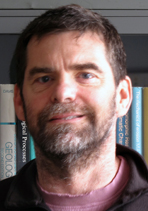 Research Geologist, U.S. Geological Survey
Research Geologist, U.S. Geological Survey
Email
Phone: 503-251-3222
Web
- The Geology and Geography of Floods (G, S)
- 1000 Dams Down and Counting (P, G, S)
- The Great Missoula Floods of the Last Ice Age (P, G, S)
Jim O’Connor is a research geologist at the U.S. Geological Survey in Portland, Oregon. His primary research focus is landscape evolution, mainly involving rivers and floods. He’s also interested in the intersection of landscapes and people, and the history of those interrelations. He’s a fellow of the Geological Society of America and has written numerous scientific articles, monographs, and general-audience features about floods, rivers, glaciers, and the history of geology. He majored in geological science at University of Washington and earned M.S. and Ph.D. degrees at University of Arizona. Since 1991, he has worked at the U.S. Geological Survey, intent on improving understanding of the processes and events that shape the remarkable and diverse landscapes of our planet.
Alexander Orlov
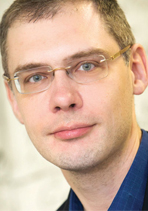 Associate Professor of Materials Science and Engineering at State University of New York, Stony Brook
Associate Professor of Materials Science and Engineering at State University of New York, Stony Brook
Email
Phone: 631-632-9978, 631-356-4675 (cell)
Web
- How nanotechnology can save us and environment: Making it happen in a safe way (P, G)
- Exploiting unhappy nanoparticles to produce energy and clean up the environment (S)
- How nanoparticles are used in consumer products: Should we be concerned? (G)
Alexander Orlov is an associate professor of materials science and engineering at State University of New York, Stony Brook. He is also a faculty member of the Consortium for Interdisciplinary Environmental Research, an affiliate faculty of the Chemistry Department and the Institute for Advanced Computational Science at Stony Brook University. He is also a visiting professor at Cambridge University, U.K. Dr. Orlov's principle research activities are in the development of novel materials for energy generation, structural applications and environmental protection. He was awarded the U.S. National Science Foundation CAREER Award and the U.K. National Endowment for Science Technology and Arts CRUCIBLE award. He was also selected to the Fellowship of the U.K. Royal Society of Chemistry, the U.S. National Academy of Engineering (NAE) Frontiers of Engineering (U.S.), the NAE Frontiers of Engineering Education and was made Kavli Fellow in 2014 by the Kavli Foundation and the U.S. National Academy of Sciences.
June J. Pilcher
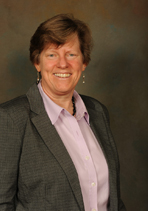 Alumni Distinguished Professor of Psychology, Clemson University
Alumni Distinguished Professor of Psychology, Clemson University
Email
Phone: 864-656-4985
Web
- Sleep: The Pattern of Life (P, G)
- Brain Works: Functional Biases and Why We Should Care (P, G)
- Sedentary America: A Lifelong Affair with a Lazy Brain (P, G)
June J. Pilcher earned her Ph.D. in Biopsychology from the University of Chicago (1989). She was enlisted in the U.S. Navy as a hospital corpsman prior to completing her B.A. and served as an officer as a research psychologist in the U.S. Army after her Ph.D. Dr. Pilcher started her academic career at Bradley University before joining the faculty at Clemson University. She has been named a fellow in the Association for Psychological Science and is the 2015 recipient of the Class of ’39 Award at Clemson. She was the Fulbright-Freud Visiting Scholar 2011–2012 in Vienna, Austria, and is a candidate on the Fulbright Specialist Roster for Public/Global Health. Dr. Pilcher’s research is broadly based on the effects of stress on performance, health, and well-being. She enjoys speaking to all types of audiences about the human brain, sleep, and physical activity.
M. V. Ramana
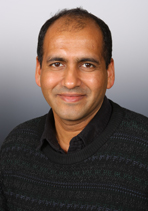 Research Staff, Princeton University
Research Staff, Princeton University
Email
Phone: 609-258-1458
Web
LinkedIn
- Fukushima and the Future of Nuclear Energy (P, G)
- Nuclear Energy in China and India: Can Ambitions Meet Reality? (P, G)
- Nuclear Weapons in India: History and Risks (P, G)
- Assessing Risk Assessment: Nuclear Regulation and Reactor Safety (S)
M.V. Ramana received his undergraduate degree in physics from the Indian Institute of Technology, Kanpur in 1988 and his Ph.D. in theoretical physics from Boston University in 1994. He is currently with the Nuclear Futures Laboratory and the Program on Science and Global Security at the Woodrow Wilson School of Public and International Affairs, Princeton University, where he has been assessing nuclear power programs around the world. Ramana is the author of The Power of Promise: Examining Nuclear Energy in India (Penguin Books, 2012) and co-editor of Prisoners of the Nuclear Dream (Orient Longman, 2003). He is a member of the International Panel on Fissile Materials (IPFM), the Global Council of Abolition 2000, and the National Coordinating Committee of India’s Coalition for Nuclear Disarmament and Peace. He is the recipient of a Guggenheim Fellowship and a Leo Szilard Award from the American Physical Society.
Paula Rayman
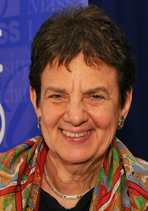 Professor of Sociology at University of Massachusetts Lowell
Professor of Sociology at University of Massachusetts Lowell
Email
Phone: 978-934-2902
Web
- Can You Work and Have a Life? Balancing Careers in STEM (P, G)
- Moving the Needle Forward: How to Create Inclusive Cultures in STEM Fields (P, G)
- The Athena SWAN Program: How Institutions Can Insure Diversity, Equity, and Innovation (S)
In addition to be being a professor of sociology at University of Massachusetts Lowell, Paula Rayman is director of the Middle East Center for Peace, Development, and Culture and executive director of the public sector hub of the Women in Public Service Project, which is housed at the Woodrow Wilson International Center. She was the founding director of the Peace and Conflict Studies program at UMass Lowell. Dr. Rayman is a Senior Fulbright Award recipient. She worked with the University of Haifa on the study: “Beyond Co-Existence: Israeli Arab and Jewish Relations.” In 2012, she led trainings on non-violent social action for a coalition of Israeli and Palestinian women leaders and spoke at the United States Embassy in Israel as part of the Distinguished American Speaker series. Dr. Rayman is also a nationally recognized scholar in the field of work organization, labor, and public policy. She is the author of Beyond the Bottom Line: The Search for Dignity at Work. She was the founding director of the Radcliffe Public Policy Center at Harvard University. Rayman has also worked extensively on issues related to women and science. She was the principal investigator for the National Science Foundation's Project Women and Techforce and WORKING WISE (Women in Science and Engineering). She is the co-author of The Equity Equation. She was the recipient of the Pathways for Women in Sciences award from the Alfred P. Sloan Foundation. Professor Rayman has been recognized for her leadership on advancing women in STEM from many organizations including the Weizmann Institute, Israel, the 1995 United Nations Woman and Science Tent, Beijing, and the Council on Competitiveness, Washington D.C.
Omowunmi (Wunmi) Sadik
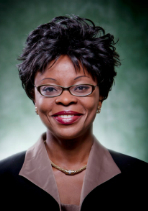 Professor of Chemistry and Director, Center for Advanced Sensors & Environmental Systems, State University of New York at Binghamton
Professor of Chemistry and Director, Center for Advanced Sensors & Environmental Systems, State University of New York at Binghamton
Email
Phone: 607-777-4132
Web
- Biochemical Sensor: An objective approach for pain measurement (P, G, S)
- Can your iPhone tell you what’s in your food? - Nanosensors for rapid detection of food pathogens (P, G)
- A new class of conducting polymers based on flexible poly(amic) acid membranes (S)
Omowunmi “Wunmi” Sadik is a Professor of Chemistry and the Director of the Center for Advanced Sensors & Environmental Systems at SUNY-Binghamton. Dr. Sadik completed her Ph.D. in Chemistry from the University of Wollongong in Australia and did her postdoctoral research at the US Environmental Protection Agency. She has held appointments at Harvard University, Cornell University and Naval Research Laboratories. Her research areas include surface chemistry, chemical sensors, biosensors, and smart materials for solving problems in biological system, energy and the environment. Sadik has over 145 full-length publications and patents, and has given 130 keynotes and invited lectures, as well as contributed 180 conference lectures and abstracts. Dr. Sadik is a fellow of the Royal Society of Chemistry, Fellow of the American Institute for Medical & Biological Engineering (AIMBE) and the recipient of Harvard University’s Distinguished Radcliffe Fellowship, National Science Foundation’s Discovery Corps Senior Fellowship, SUNY Chancellor’s Award for Research, Chancellors Award for Scholarship & Creative Activities, Chancellor’s Award for Outstanding Inventor, Harpur College Dean’s Distinguished Lecturer, Australian Merit Award, and NRC COBASE fellowship. Sadik holds four U.S. patents for her work on biosensors, which have been licensed for commercial products. Sadik chaired the inaugural “Gordon Conference on Environmental Nanotechnology in 2011 and has served as the nanotechnology editor for the RSC Journal of Environmental Science Processes and Impact. She co-edited the ACS Symposium series on environmental sensors and has organized and/or chaired over 30 symposia/workshops at national and international conferences. As the President and co-founder of the Sustainable Nanotechnology Organization-SNO (www.susnano.org), Sadik is promoting the responsible growth of nanotechnology around the world through research, education and outreach.
Richard Schwartz
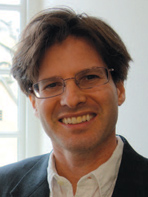 Chancellor’s Professor of Mathematics, Brown University
Chancellor’s Professor of Mathematics, Brown University
Email
Phone: 401-245-0026
Web
- 5 Points on a Sphere (P,G,S)
- The Mathematics of Slicing and Reassembling (P,G)
- Lucy and Lily (P)
Richard Schwartz grew up in Los Angeles. He attended UCLA from 1984-87, earning a B.S. in Mathematics. He attended Princeton University from 1987-91, earning at Ph.D in mathematics. He has been an N.S.F. Postdoctoral Fellow, a Sloan Fellow, a Guggenheim Fellow, a Simons Fellow, and a Clay Research Fellow. He was a speaker at the 2002 International Congress of Mathematicians. He has worked in geometric group theory, discrete subgroups of Lie groups, geometric dynamics, and energy minimization. He likes to explore simply stated unsolved problems often with the aid of the computer. In his spare time, he likes drawing comic books, listening to music, cycling, programming, and spending time with his family.
Sally C. Seidel
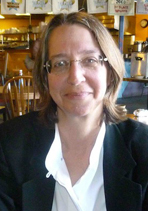 Professor of Physics, University of New Mexico
Professor of Physics, University of New Mexico
Email
Phone: 505-277-2087
Web
- Discovering New Particles: What Patterns in Nature Might Tell Us About the Structure of the Universe (P, G)
- A New Little Big Bang Every 25 Nanoseconds: Using Particle Accelerators to Recreate the Conditions of the Early Universe (G)
- Gifts from the LHC: Expected and Unexpected Results from the Particle Physics Frontier (G, S)
- The Role of Instrumentation in Particle Physics Discovery (G, S)
Sally C. Seidel is the faculty member of the University of New Mexico's Collider Physics Group. Their primary goal is an improved understanding of heavy quark bound states. These studies increase the understanding of the strong force, one of the four fundamental forces of nature. They may also contribute to the discovery of physics beyond the Standard Model. This work requires that they collect and analyze data at the Large Hadron Collider and other experimental facilities. It also requires them to design, construct, and test state-of-the-art particle tracking detectors, interconnects, and electronics. The instrumentation may ultimately be incorporated into medical imaging or security verification systems that would benefit the greater society.
Herman Sintim
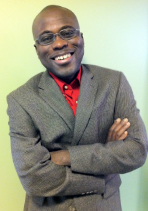 Drug Discovery Professor of Chemistry–Organic Chemistry/Chemical Biology, Purdue University
Drug Discovery Professor of Chemistry–Organic Chemistry/Chemical Biology, Purdue University
Email
Phone: 301-405-0633
Web
- Bacterial conversation, what is it and how can it be stopped to prevent infections from spreading? (P, G)
- New strategies to curb bacterial infections via the disruption of quorum sensing and/or cyclic dinucleotide signaling (S)
- Personalized medicine and the role of simple diagnostic platforms (G, S)
- The bacterial resistance problem and why we should care (P, G)
Dr. Sintim obtained his BS in Medicinal Chemistry from the University College London and D.Phil. in Organic Chemistry from the University of Oxford, under the guidance of Professor David Hodgson. He then performed postdoctoral research in the chemistry of natural products at the University of Oxford in the laboratory of Professor Timothy Donohoe and a second postdoctoral research in Chemical Biology investigating the rules that govern DNA replication at Stanford University in the laboratory of Professor Eric Kool. In 2006, Sintim began his independent research at the University of Maryland as an assistant professor of chemical biology and was promoted to associate professor in 2012. In 2015, he was promoted to full professor and soon afterwards accepted an offer to move his laboratory to Purdue University.
Todd Surovell
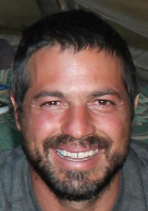 Associate Professor of Anthropology, University of Wyoming
Associate Professor of Anthropology, University of Wyoming
Email
Phone: 307-766-3239
Web
- Using the Present to Figure out the Past: An Ethno-Archaeological Study of Mongolia's Reindeer Herders (P, G, S)
- What Caused the Extinction of North America’s Mammoths? (P, G, S)
- Ice Age Hunter-Gatherers of the Rocky Mountains (P, G, S)
Todd Surovell is an Associate Professor and the Director of the George C. Frison Institute of Archaeology and Anthropology in the Department of Anthropology at the University of Wyoming. He is an archaeologist specializing in the first peoples of the New World, ethnoarchaeology, geoarchaeology, lithic technology, and quantitative methods. In addition to fieldwork throughout the Rocky Mountain west, he has worked in Israel, Denmark, and Mongolia. He is the author of Toward a Behavioral Ecology of Lithic Technology, a book examining the economics of stone tool use. He excavated the Barger Gulch site, a large winter campsite occupied at the end of the last Ice Age. He is currently excavating the Fetterman mammoth kill site and the Late Prehistoric Wold Buffalo Jump. In 2012, he initiated the Dukha Ethnoarchaeological Project, which involves the study of the spatial organization of human behavior in campsites of nomadic reindeer herders in northern Mongolia.
George Weiblen
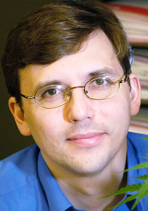 Distinguished McKnight University Professor, Plant Biology and Interim Scientific Director, Bell Museum of Natural History, University of Minnesota
Distinguished McKnight University Professor, Plant Biology and Interim Scientific Director, Bell Museum of Natural History, University of Minnesota
Email
Phone: 612-624-3461 (office), 612-625-8749 (lab)
Web
Bell Museum on Facebook
Bell Museum on Twitter
- The Cannabis conundrum: genetics and politics of America's most controversial plant (P, G)
- Biodiversity discovery on the rain forest frontier (P, G)
- The coevolutionary microcosm: plants, pollinators, and parasites (S)
- Global forest observatories: an international network monitoring biotic responses to our changing climate (S)
George Weiblen is the scientific director of the Bell Museum of Natural History and Planetarium at the University of Minnesota. He is a curator of the herbarium and Distinguished McKnight University Professor in the Department of Plant Biology. His interests include botany, biodiversity discovery, forensic applications of DNA technology, and citizen science. He has coordinated more than 20 research grants exceeding $3.7 million dollars that produced more than 60 peer-reviewed scientific articles. Weiblen’s research centers on the interactions of flowering plants with insect pollinators and pests. He has participated in more than 20 expeditions to Papua New Guinea, living in the country for several years, and coordinating indigenous participation in scientific research. He is fluent in Melanesian Pidgin and participates in New Guinea forest preservation initiatives. He also is an expert on the plant group Urticales including figs, mulberries, nettles, hops, and hemp. He is one of few researchers registered with the U.S. Drug Enforcement Administration to study Cannabis. He earned his B.A. at Reed College and his A.M. and Ph.D. at Harvard University.
Erica Zell
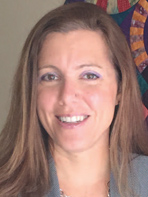 Wind Analyst, E. ON Climate and Renewables
Wind Analyst, E. ON Climate and Renewables
Email
- Initiating a Solar and Wind Resource Monitoring and Mapping Program in the Middle East (G,S)
- Boosting International Capacity for Environmental Governance and Climate Resilience (G,S)
- The Art of Science Communication-Why Isn't Anybody Listening? (G,S)
Ms. Zell has twenty years of experience performing environmental, clean energy, and climate change work, both domestically and internationally. The common thread throughout her career has been working at the intersection of science and policy, helping scientists communicate important findings in meaningful ways, and building the capacity of government and industry decision-makers to take science-based actions. Together with her colleagues, she has conducted real-time analysis of scientific data to draw attention to heat waves in India, dust storms in Saudi Arabia, and smog and wildfire events throughout the U.S. Her work has been included in The Economist and in the Scientific American guest blog. She has helped develop online information systems for renewable energy assessment, and environmental indicators to inform air quality policy and build capacity for environmental governance in countries around the world. She spent two years in the Philippines as a U.S. Peace Corps volunteer working on water and sanitation, and more recently spent two years in Saudi Arabia, leading a solar and wind resource monitoring project for Battelle in collaboration with the U.S. National Renewable Energy Laboratory. She previously served as the Co-Chair of the Climate and Energy Working Group for the Earth Science Information Partnership (ESIP). She has worked with groups in Russia, Ethiopia, Senegal, El Salvador, Costa Rica, Panama, and Thailand, among others, hosting trainings and public outreach sessions. She also has extensive experience leveraging satellite datasets within a geographic information system (GIS) to support decision-making. Ms. Zell has performed projects under contract to the U.S. Environmental Protection Agency (EPA), U.S. Agency for International Development (USAID), and National Aeronautics and Space Agency (NASA), among other clients. After obtaining her Master’s Degree in Environmental Engineering from the University of California at Berkeley, her career began at EPA Region 9 in San Francisco. She currently lives in Austin, Texas.